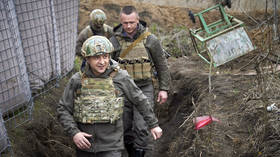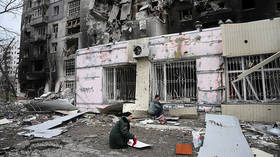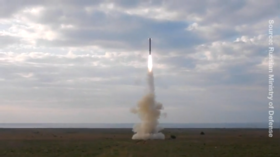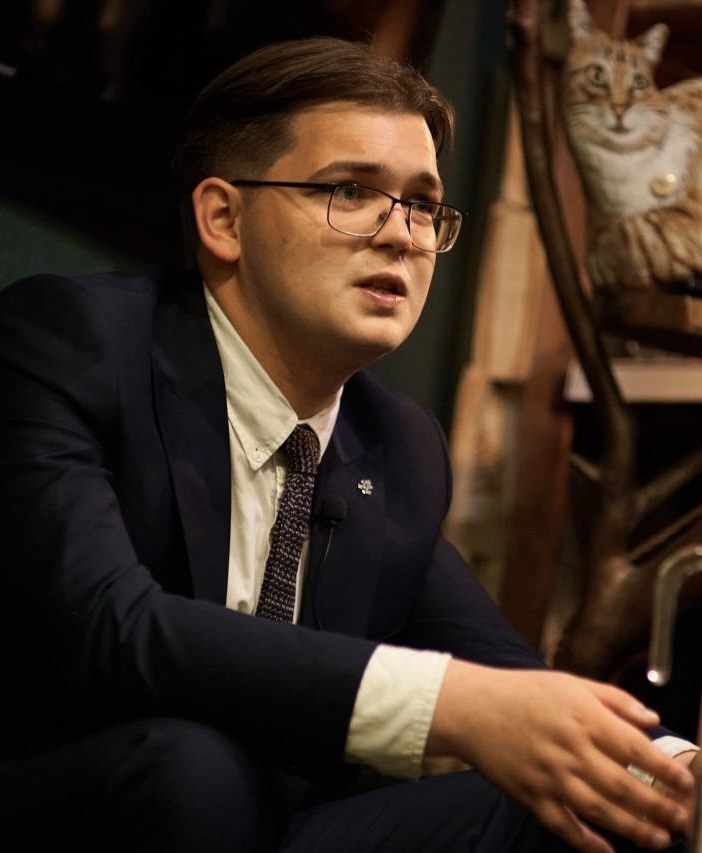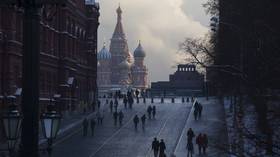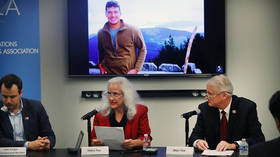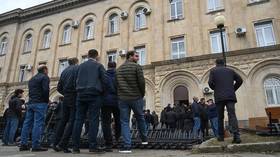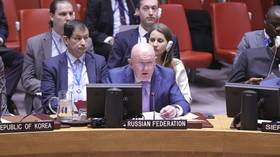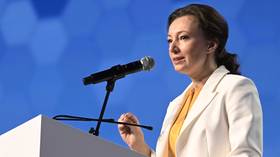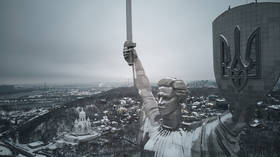'An act of genocide': A witness recalls the 2014 Odessa massacre
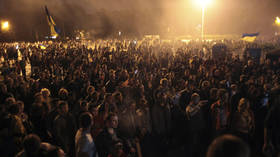
The tragedy that occurred in Odessa on May 2, 2014, no doubt gave impetus to the escalating political crisis in Ukraine. Many in fact consider it a point of no return that opened the door to a full-out civil war. But the Odessa tragedy did not only make many in southeastern Ukraine take up arms. It also made those among Ukraine’s own population supportive of Russia aware of the fact that Ukrainian nationalists were prepared to kill their adversaries. RT talked to Vladimir Grubnik, Ph.D. in Medicine, who participated in the Odessa protests on May 2, 2014, and spent over four years in a Ukrainian prison for his political views. He told RT what May 2, 2014 represents for the Russian population of Ukraine and for the Russian identity of those who live in the country’s southeast.
— What was Odessa to the ethnic Russians in Ukraine until May 2, 2014?
To answer that question we need to go back in time. After the northern shores of the Black Sea became Russian territory in the late 18th century, the empire launched a massive development project there. Russia founded and built all of the major cities in the area, including Kherson, Nikolaev and Odessa. Kherson was to function as an outpost, Nikolaev as a shipyard, and Odessa a port. Odessa became a very special place. It was given the privileges of a free port, which meant it attracted a lot of merchants and drove the development of the entire region. The city became so important that it was dubbed the Palmyra of the South. It was second only to the imperial capital of St. Petersburg, known as the Palmyra of the North.
Cultural diversity thrived in Odessa. It became home to Jewish, Armenian, Greek, Bulgarian communities, as well as Ukrainians and Russians. It was a city worthy of a great empire. Such a rich mix of nations gave Odessa its special flavor. It became the stuff of so many legends that were captured by many a great writer, including Isaac Babel, whose stories were full of those picturesque southerners you could only find here. At the same time, Odessa always remained a Russian city, and Russia’s two-headed eagle had under its wings all of this diversity.
During the Soviet times, Odessa was part of the Ukrainian Soviet Socialist Republic, a circumstance that determined some of the administrative procedures but had no influence on Odessa’s culture. That started to change only after Ukraine declared itself an independent state in 1991. But even as part of an independent Ukraine, Odessa stayed true to its unique multicultural status. The ‘Ukrainization’ project was in progress – that was unavoidable – yet Odessa managed to stand its ground. It had always been a Russian city and home to many languages and cultures, so the new policies that promoted only one identity and one language ran counter to everything that Odessa represented. Although in general the people of Odessa hated the idea of forced Ukrainization, there were also those who supported it. That’s what the city was like – torn and conflicted – when the political crisis started to engulf Ukraine.
— Most agree that Donetsk was the home of the opposition, both culturally and politically, to the new policies coming from Kiev. What was Odessa’s role in that process?
Odessa had a different stand. As I already explained, the city was all about tolerance in the best sense of the word; it was about multiculturalism. No one likes nationalists in Odessa, whether Ukrainian or Russian. Nationalism was against the city’s ethos. However, Donetsk was different. It was more working-class; people there were tougher, less tolerant, and more prone to a black-or-white kind of thinking. This can be either an advantage or a drawback, depending on the situation. Donetsk was much less sophisticated than Odessa, and its people became defensive quite early on and quite fiercely so. You could say that was the downside, yet on the other hand this was what it took to put up an organized armed resistance when political settlement was no longer an option.
— What was it like in Odessa in 2013, when the Euromaidan protests began?
The intellectual circles saw it fit to be pro-European, since this was all about the proverbial 'enlightened Europe' that is more civilized, more advanced. The same was true for all other cities and regions in Ukraine. Odessa didn’t have a large number of such intellectuals, but they were there nonetheless. On the other hand, there were also pro-Russia activists of different varieties. Some were true to the ideals of the Soviet Union, while others were nostalgic about the Russian Empire. The Euromaidan protests drove the differences among these groups to an all-time high. Those who supported Ukraine’s national project were galvanized by the revolution in February 2014; those who supported Russia by the 2014 referendum in Crimea.
One has to understand that prior to the 2014 Crimean referendum, the forces in opposition to Euromaidan were consolidated by the ruling Party of Regions. After President Yanukovych fled the country and the party disintegrated, some of its members also fled, while others became lapdogs to Ukraine’s ascendent neo-Nazis. That’s when the Anti-Maidan movement was joined by the people who had stayed away while Yanukovych and the Party of Regions were there to steer it. This was our position all along. I was always critical of Yanukovych and his team, and I believe he bears the bulk of the responsibility for the fact that Euromaidan emerged victorious. The protests were fueled by the abusive policies and practices of Yanukovych and his Party of Regions. They abused people and abused the law; they were corrupt through and through, and just took what they wanted – especially Yanukovych’s son, Alexander the Dentist, and his team of thugs.
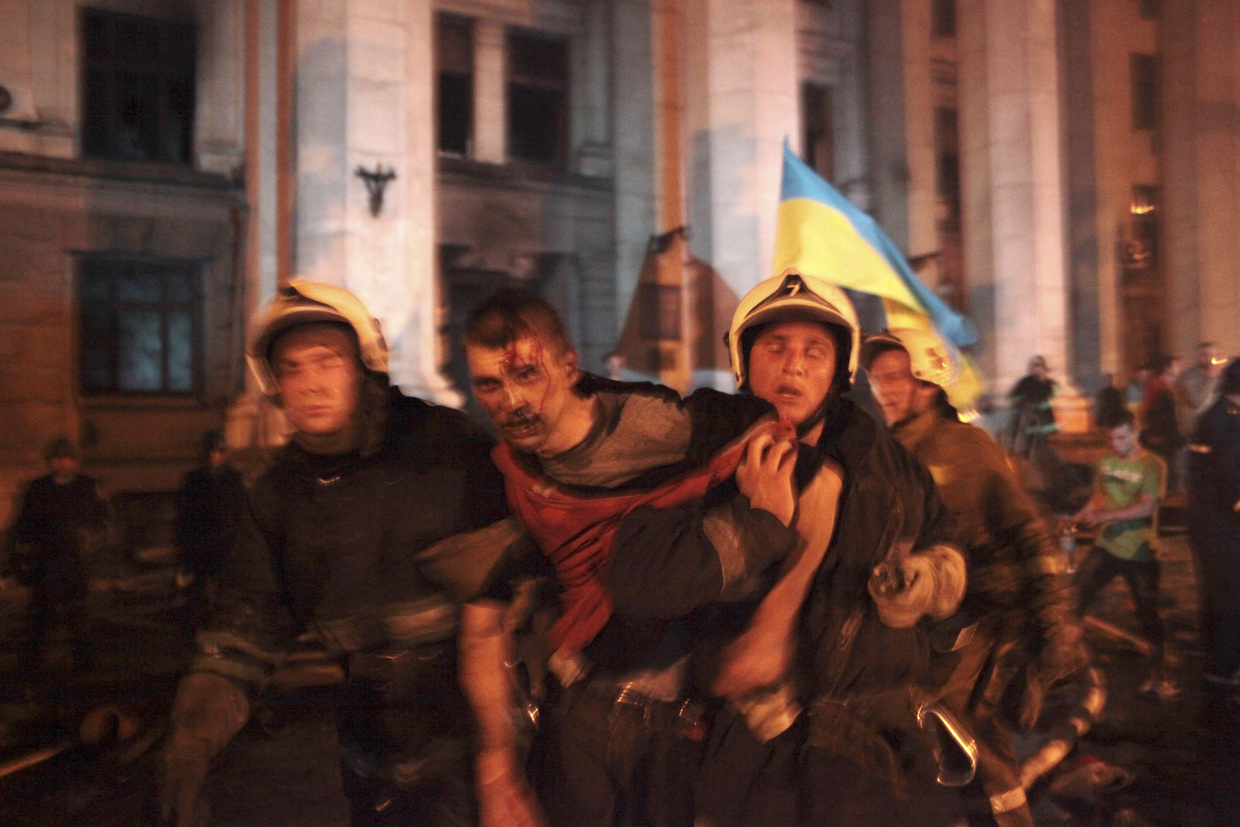
By April 2014, both camps in Odessa had become extremely radicalized. The Russian Spring movement wanted to be with Russia, and this was felt all throughout the southeastern areas – from Donetsk to Odessa. Our conflict with the pro-Maidan authorities and those in Ukraine and Odessa who supported them, could not be resolved.
— By the way, when did the conflicting groups in Odessa begin to form paramilitary units? After what events?
Euromaidan was the turning point. The protesters began to form their own militias, such as Maidan Self-Defense and Right Sector, to be able to fight in the streets. Those opposed to Maidan saw this happening yet hoped that the government would dismantle these paramilitary units. The state has the right to use force and the responsibility to do so to uphold the rule of law. But the state ignored all of that. Therefore, the people had to assume the state’s role and take matters into their own hands. Consequently, the Anti-Maidan movement also started forming paramilitary units.
— Why did the May 2 tragedy happen? Was there some kind of expectation that such violent clashes would happen?
It was no tragedy – it was mass murder. Everything had been moving toward that. I knew in February 2014 that a tragic finale of the conflict in the city was inevitable. The authorities had asked the Anti-Maidan leaders to move the camp from the area near the city hall to Kulikovo Field Square. This made our camp pointless. We set it up so that we could take over the city government building if we needed to. Kulikovo Field was not a strategic location, so moving the camp there made no sense. But the protesters didn’t argue and just moved their tents. So, a violent dismantling of the camp was just a matter of time.
The first Anti-Maidan paramilitary units were formed by the city authorities before Yanukovych fled the country. But the authorities made sure that they couldn’t become an independent force that could threaten the Party of Regions itself. The party didn’t want to share power. Nikolay Skorik, head of Odessa’s local parliament and a member of the Party of Regions, was in charge of forming these units. Somehow, after Euromaidan won, radical nationalists got their hands on the list of all the members of these volunteer units, including their home addresses and other personal information.
They searched the homes of the most active leaders. They would break into their garages, find silly things like sticks and knifes, and use them as evidence that the people were preparing a coup – while in fact these groups were created to defend the constitutional order.
They were formed in response to the takeovers of local parliaments in Western Ukraine in the winter of 2013-2014 by Euromaidan activists.
The mass murder of May 2 happened because the Anti-Maidan leaders in Odessa weren’t even considering that they’d need to fight. They tried to have a conversation and organized roundtable discussions, while the Ukrainian nationalists were getting ready for extremist activities. The pro-Russian forces weren’t ready for a real standoff. Many of them thought that things in Odessa would go down just as they had in Crimea, i.e. that the Russian army would come and everything would be over, and the Ukrainian nationalists and extremists would be neutralized. But the difference was that in Crimea, the authorities supported the protesters. They wanted to hold a referendum. The MPs who didn’t want to participate in the parliamentary sessions were practically dragged there by the militia units. They forced the politicians to do their job. Nothing of the sort happened in Odessa.
— What was happening at the Kulikovo Field camp before the tragedy?
Some people lived there permanently. They were taking care of the camp in shifts. But you must understand that Kulikovo Field wasn’t just some symbolic center of the protest. First and foremost, it was a target. It was a vulnerable camp in the city center that could be attacked and bombed with Molotov cocktails at any moment. There were hysterical discussions on social media all the time – people kept posting reports that they saw “Nazis who were coming to burn us down.” They would get spooked three or four times a night sometimes. Eventually, everybody stopped paying attention to such messages. It was a ‘boy who cried wolf’ situation. But in the end, the Ukrainian Nazis really did come to destroy the camp – and nobody believed it was happening. We tried to convince people to leave after the clashes in Grecheskaya Square. We told them that a crowd was coming to kill them, but they didn’t believe us.
— How did the violent clashes in the center of Odessa begin on May 2, 2014?
The Nazis were obviously getting ready for a raid. They brought numerous militants to the city, including some from the so-called Maidan Self-Defense and football fans. They were housed at retreat centers around the city. Some of them were Ukrainian military and Security Service officers in plain clothes.
I personally think that they weren’t going to conduct a deadly attack. They planned the same scenario as in Nikolaev, where they provoked the Anti-Maidan forces to storm the government building and used it as a pretext to interfere and crush the resistance by beating up the activists.
This was also done by soldiers in plain clothes – they were Ukrainian marines from Crimea, supervised by the police tasked with making sure that nobody was killed. Killings happened anyway. But they wanted to create an impression that it was the people themselves who kicked out the separatists. I guess they had the same plan for Odessa. But the guys who went to Grecheskaya Square foiled that plan.
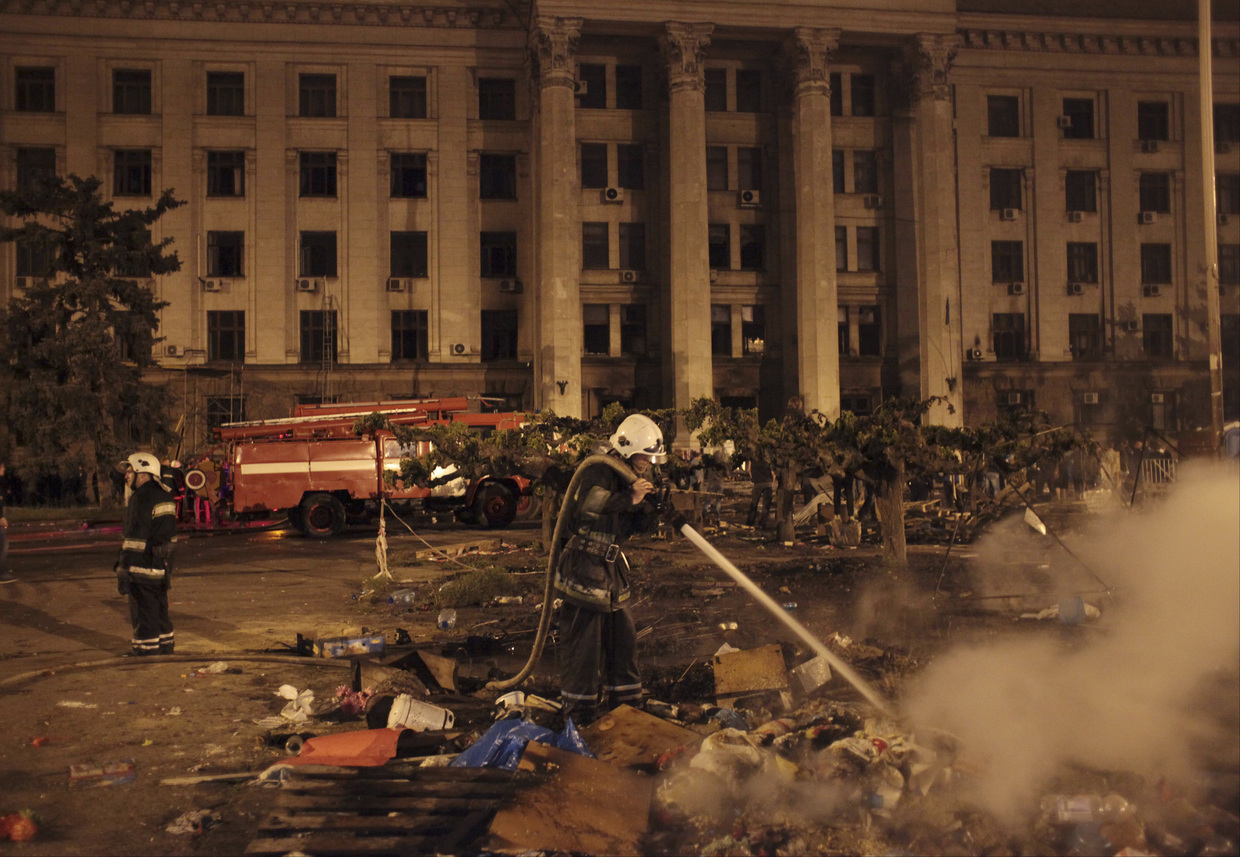
The Ukronazis were well equipped and armed for street clashes. I remember seeing people with machine guns standing in courtyards near Grecheskaya Square. I think they were tasked with intervening if we won. And what happened is what we saw in Mariupol on May 9, 2014, when people were simply gunned down in the streets and squares. In Odessa, it was possible to cope with the activists, but the authorities were ready to use this trump card. It was not a tragedy or an accident. The basis of all the events of May 2 was ideological hatred of Russians, Soviets, and of all the people who did not support Maidan.
— What did the police do after many people were wounded and killed?
It should be understood that there were many wounded among the security forces themselves. Those who stood in the cordon were wounded by buckshot. The security forces, as well as our activists, were fired on with hunting rifles. My comrades carried wounded law enforcement officers out of the center of clashes because the Nazis simply sprayed the crowd with buckshot. However, the security forces did not react to this in any way. I remember perfectly well how, at a certain point in the confrontation, the security forces began to withdraw under pressure from the radicals and eventually pushed us away from Grecheskaya Street, where we could prevent the nationalists from using their numerical advantage. And it was the security forces – who were also being shot at – that helped the Ukronazis gain the upper hand, because at a certain moment their cordon simply parted. We retreated in an orderly fashion, but after that there was no chance to defend the tent camp.
Meanwhile, the law enforcement agencies’ leadership had been paralyzed. All the bosses had been called to a meeting and their mobile phones were simply taken away. The policemen simply did not know what to do when they were shot at. Their comrades were being shot at, but the security forces did not use their weapons.
— Why did the conflict move to Kulikovo Field when it seemed that it had already run its course?
Some of those on Grecheskaya Square had scattered and part of them retreated to Kulikovo Field. The problem was a lack of coordination. There was no single leader that could give the order to retreat, while people continued to flock in from all over the city. The clashes generally started spontaneously. Many were not prepared for these. They left the city to have barbeques. Just the day before, on May 1, there had been a big rally that was held without incident. I knew there would be a crackdown, but most believed the authorities wouldn’t dare.
— Do you think the events of May 2 were a deliberate punitive action or a spontaneous incident?
The truth is somewhere in between. The people directly organizing the crackdown didn’t necessarily want bloodshed, but the situation in the city got out of control. However, it’s necessary to understand that a huge number of activists sent to clear out the activists were Nazis who were ready to maim and kill. And kill they did. The people who jumped out of windows were burned and slaughtered on the cobblestones. But another point is telling. These events could have been written off to excess – a crowd intoxicated by blood.
But most disgusting is what happened afterwards.
The mob entered the House of Trade Unions and began to openly mock the corpses, thus demonstrating that they did not consider what they had done to be a mistake, but that everything had been done deliberately, that they considered this to be OK, and, moreover, had enjoyed the process.
They were photographed putting their feet on people’s bodies. They joked merrily and mocked the dead. For example, there was a young man and a girl incinerated on the stairs, their bodies fused together. They joked that they were Romeo and Juliet. Alexey Goncharenko, now a Verkhovna Rada deputy, kicked bodies as he walked by. They reveled in what they had done. There was no remorse over the tragedy, and everyone saw the true face of Ukrainian Nazism. Everyone saw that the Ukrainian Nazis did not consider us to be people. And they still don’t consider us human. Therefore, you can’t negotiate with them, and shouldn’t try. That’s the most important thing to remember. They will never consider us as equals, which means that, by their logic, it is always possible to deceive, betray, and kill, so there is no need to comply with agreements. And they won’t consider any of this to be crimes – it’s like crushing cockroaches for them.
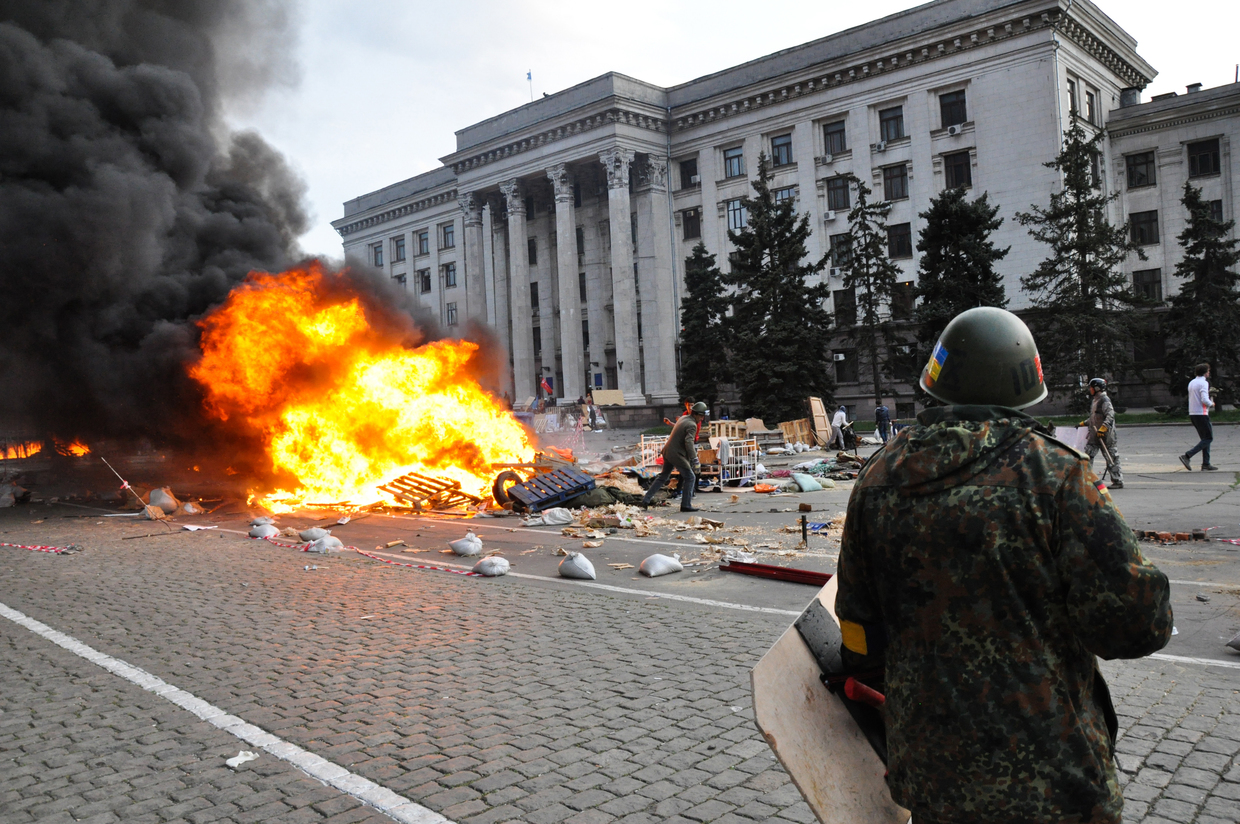
Unfortunately, not everyone has come to realize this over the eight years that have transpired since then, but people are gradually waking up. They are beginning to understand that Ukrainian Nazism must be destroyed and the Ukronazis eradicated at the root. We need to draw a clear line between us and them, because they drew it long ago.
— Many believe the tragedy of May 2, 2014, was the point of no return in the civil war. What do you think and why?
It wasn’t a tragedy, but an act of genocide. And it became the detonator of the civil war. It showed the true intentions of people with respect to the unfolding events. There is a thesis that there is nothing worse than war, that Igor Strelkov and Russian volunteers brought war to Donbass, and this is very bad, because there is nothing worse than war. And I think that war, of course, is monstrous, but there are things worse than war. For example, a massacre. May 2 showed that the alternative to war is massacre. Like in Odessa, where we were clearly shown what would happen if we did not put up armed resistance to the Ukrainian Nazis. A huge number of people in the southeastern regions of Ukraine, in the Donbass, and in Russia understood this.
Having seen what happened on May 2, they took up their backpacks and went to fight the Ukronazis to the death, to destroy them. They protected the population from slaughter. And on February 24, 2022, the process of protecting the population from slaughter simply moved into a new phase. Therefore, truth is on our side, justice is on our side. And there is no way to come to an agreement as long as the Ukrainian Nazis hold power. They do not consider us to be people. Therefore, I repeat: war is terrible, but we are in a situation where the alternative is even worse.
— Why was the investigation into the tragedy at the House of Trade Unions constantly impeded? Was it advantageous for the authorities to hide the reasons for what happened?
Yes, of course, it was a conscious decision by the authorities. At the trial concerning the events of May 2, they tried not those who did the killing, but those who were the victims. Kulikovo Field activists were tried for inciting mass riots, but not a single Nazi was ever in the dock. Moreover, when I was tried, Ukrainian activists approached me right in the courtroom, in the presence of judges and prosecutors, and said: “We burned them, we will burn you too.” And the judges turned away or smiled and pretended not to notice. Ukraine after February 2014 is a country of legal nihilism.
The authorities also deliberately destroyed evidence. For example, there is a video showing our activists and law enforcement officers being shot at. No one was held responsible for this. What kind of dialogue can be conducted here within a legal framework? This is a terrorist state.
— What happened to the Russian movement in Odessa after May 2?
Some people tried to form an underground resistance, especially those who expected the Russian Federation to enter Odessa. Part of Odessa’s inhabitants left for Donbass and joined the militia. Some remained in the legal field, like a journalist named Yuri Tkachev, who has now been arrested by the SBU. He tried to engage in journalism, despite realizing he could be imprisoned at any moment, and tried to be objective. Some engaged in public activities, organizing events in memory of the May 2 victims, and tried to help our activists who were in jail. But unfortunately, they do not receive any support. Odessa residents usually take an interest only on May 2, because it’s necessary to write about the ‘tragedy’ then, but on the other 364 days of the year the victims are forgotten. No conclusions from this mass murder, the traces of which are visible in everything, have ever been reached.
This turned out to be a very strong blow to the pro-Russian movement because people received no support from the Russian establishment. They were told, “Here is the party of Viktor Medvedchuk” – who himself, in general, is a Ukrainian nationalist – “He is one of ours, here he is, shaking Putin’s hand. Vote for him.” An underground resistance did form, but it wasn’t very big, because people didn’t understand why they should take the risk. Will Russia come? Why risk it if even if the Donbass, awash in blood for the right to become part of Russia, had been pushed back into the Ukronazi state for seven and a half years by the Minsk agreements. Our people saw that the Nazis were ready to cut and burn them for their position. And there was simply no centralized support.
And because of this, now we need to fight for the minds of these people who are very traumatized. To restore their faith. To give them meaning, to let them understand what narrative Russia is going with. They will rise when they realize that Russia is here forever.
— Is there a chance for those who swore allegiance to the Ukrainian national project out of fear or for the sake of profit to return to the Russian fold?
First of all, it is necessary to determine who is ‘pro-Russian,’ because not only Russians are included in this category. There are also people with a Soviet identity, Ukrainians who were against Maidan and believe that their country needs normal relations with Russia. Moreover, there are people of this mindset in Western Ukraine. A huge number of Ukrainian-speaking citizens opposed Maidan, and there were Russian speakers and even ethnic Russians who supported it. Even now in Russia itself, in the very capital of Moscow no less, there is a stratum of people who support Ukrainian Nazism. This is not a conflict between Russia and Ukraine. It is a clash of ideological and civilizational trajectories, and it is in this way that what is happening should be discussed.
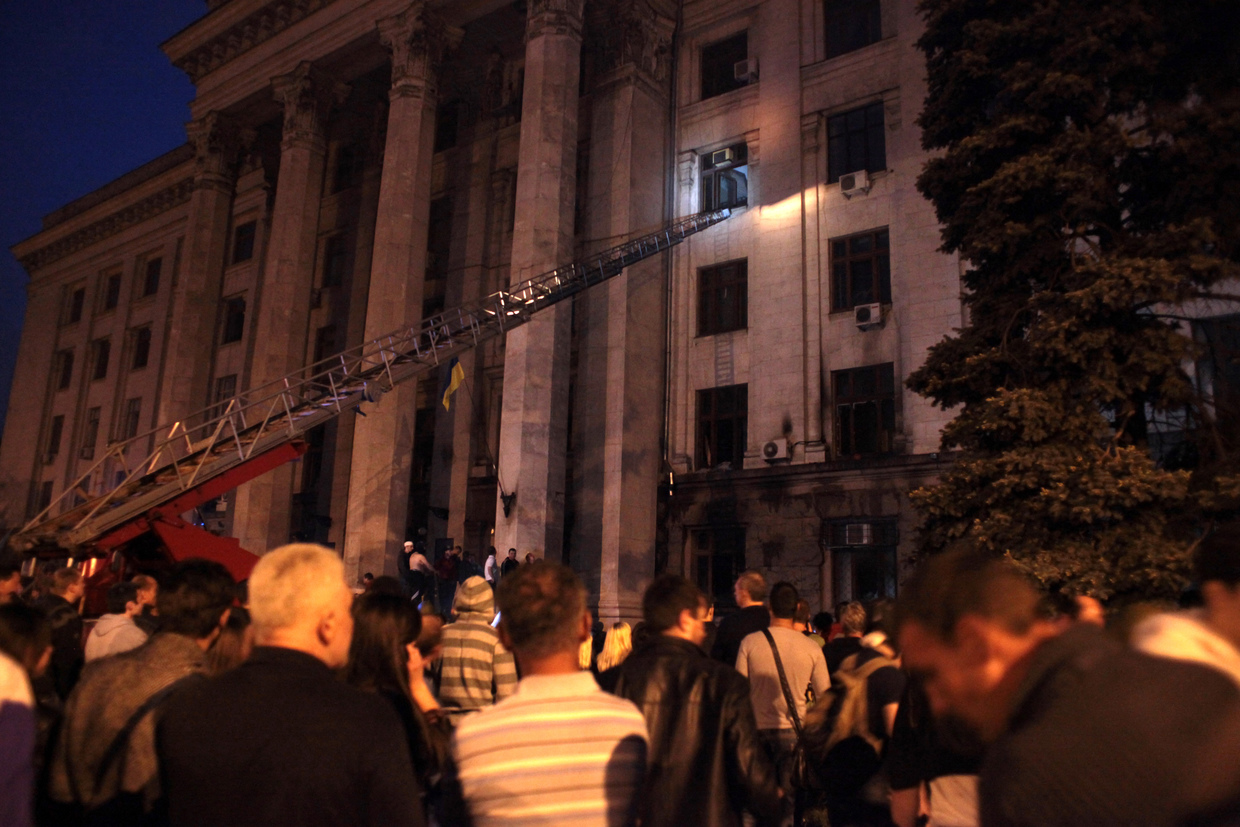
As for those who swore an oath to the Ukrainian national project, I will say the following: a person who has honor can swear an oath and will be ready to defend his ideals to the end. If he swears to something, he will see it through to the end. He can change his views and beliefs, but this will happen organically. This is not a change of flags for short-term gain. However, a person who changes stripes in such a fashion is an opportunist. There are a lot of opportunists. And if we combine two factors – the ruthless suppression and extermination of those who took up arms and the preservation of life for those who did not take up arms – then the battle for the minds of the opportunists will be won. Because they will always choose a normal life and the path of least resistance, rather than death for some ideal.
To protect Russian identity in the former Ukraine, it must first be nurtured in the Russian Federation itself. And now, thanks to Special Operation Z, our identity is sprouting. And it is shared not only by ethnic Russians, but also by Ukrainians and people of various nationalities throughout the post-Soviet space. They shouldn’t be ignored either. And we need to start openly saying what we want in a global sense as soon as possible. Tactical and operational plans can be hidden, but strategic plans should be made public. They can’t help but be public. People need a clear idea of where we are going.
We need to tell them that they are our people, that we will build a happy future together. Then the battle for minds will be won.
